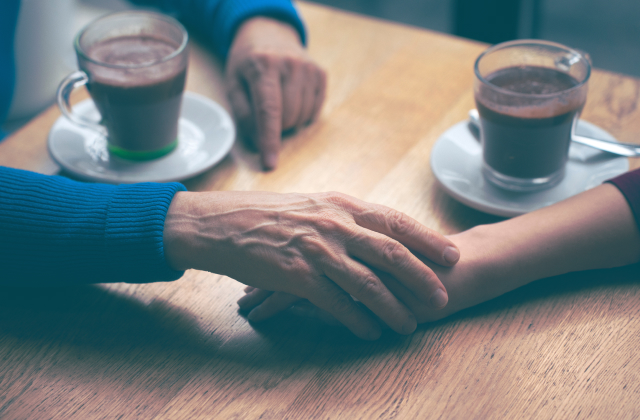Boosting Emotional Health: The Impact of Home Care Services
In the journey of aging, the significance of emotional well-being becomes increasingly apparent. For older adults, maintaining mental health and emotional stability is paramount to a fulfilling and meaningful life.
The Role of Emotional Support in Mental Well-Being
Emotional health is a crucial component of a content and rewarding life, especially for seniors who greatly benefit from receiving focused emotional support. This support is key in maintaining their mental health. Isolation and chronic loneliness are known to adversely affect the elderly’s mental state, leading to the development of issues like anxiety, depression, and various complex mental health problems.
The dire consequences of these mental health challenges are often overlooked, but they can cast a shadow over the golden years of seniors’ lives. Nevertheless, the presence of compassionate and empathetic companions can act as a beacon of hope in this emotional landscape. These caregivers, offering not only physical assistance but also invaluable emotional sustenance, play a transformative role in alleviating the mental health struggles faced by seniors.

The Dangers of Senior Isolation at Home
Senior isolation, especially when confined to the home, poses significant dangers to emotional and mental health. The absence of social interactions and friendship can lead to feelings of loneliness, sadness, and even despair. It can also exacerbate existing health conditions and decrease overall life satisfaction. Recognizing these dangers is the first step in addressing them proactively.
How can caregivers help seniors?
Caregivers provide an essential and empathetic service by supporting the emotional health of seniors with their nurturing demeanor in home care settings. In the realm of companionship in home care, caregivers engage in meaningful conversations, foster connections, and actively encourage seniors to participate in social activities, thus creating a nurturing and emotionally enriching environment where emotional well-being takes precedence. This level of dedicated support goes beyond the confines of traditional caregiving; it is a heartfelt commitment to nurturing the emotional and mental health of each individual under their care.
Angel Care, Inc. – Your Reliable Ally in Elderly Home Care
At Angel Care, Inc., we understand the profound impact of emotional well-being on the lives of seniors. Our dedicated team of caregivers is committed to providing exceptional care services, including skilled support, that prioritize the mental health and happiness of our senior clients. If you or your loved ones are seeking home care services, please don’t hesitate to contact us at 917-507-7500 or send us an inquiry via email at [email protected]. Together, we can create a fulfilling and emotionally nurturing environment for seniors in the comfort of their own homes.
At Angel Care, Inc., we deeply appreciate and recognize the profound impact that emotional well-being holds within the lives of our beloved seniors. Our unwavering dedication is embodied by our exceptional team of caregivers. Our approach goes well beyond traditional caregiving. We specialize in delivering exceptional, high-quality home care services. We acknowledge that emotional support is not just an additional facet but a fundamental necessity for our cherished senior community. By joining hands with Angel Care, Inc., we embark on a shared journey to create an environment that is profoundly fulfilling and emotionally nurturing for our seniors. Your pathway toward enhanced emotional well-being and quality home care services begins here, with Angel Care, Inc.

As we journey through life, the needs of older adults often evolve, and recognizing these changing care needs becomes crucial, especially when it comes to ensuring their well-being and quality of life. Signs of Needing Home Care Physical Limitations: One of the prominent signs of needing home care is the presence of physical limitations that hinder day-to-day activities. These limitations may include difficulty with mobility, performing personal hygiene tasks, or managing medication independently. Cognitive Changes: Recognizing cognitive changes such as memory loss, confusion, or dementia is crucial. These signs may indicate a need for specialized home care services tailored to cognitive health. Chronic Health Conditions: The presence of chronic health conditions that require ongoing medical attention, such as diabetes, heart disease, or respiratory disorders, can signify the need for home health care. Emotional and Psychological Distress: Older adults experiencing depression, anxiety, or emotional distress may benefit from home care that includes emotional support and companionship. Addressing These Signs Addressing the signs of needing home care begins with open communication and assessment. Family members, healthcare professionals, and the older adult should collaborate to determine the specific care needs. Once identified, a personalized care plan can be established to address physical, cognitive, emotional, and medical requirements. Recognizing and Anticipating Home Health Care Needs Anticipating home health care needs is a proactive approach to ensure the well-being of older adults. Regular assessments and discussions about recognizing care needs and evolving care requirements can help caregivers and healthcare providers adapt the care plan accordingly. This proactive approach helps prevent crises and ensures that the older adult receives the appropriate level of care at all times. Home care options In-Home Caregivers: Trained caregivers can provide assistance with daily tasks, medication management, and companionship, allowing older adults to remain in the comfort of their homes. Home Health Services: Skilled nurses and therapists offer medical care and rehabilitation services in the home, especially beneficial for those with chronic conditions or recovering from surgery. Hospice Care: For individuals with terminal illnesses, hospice care provides compassionate end-of-life support that focuses on comfort and quality of life. Assisted Living Services: Some older adults may benefit from residing in assisted living communities that offer a blend of independence and support. Spiritual Support Services: Engaging with spiritual counselors or connecting with religious organizations can provide spiritual care tailored to individual beliefs and needs. Start home care with Angel Care now, in NY. One trusted and reliable option for receiving high-quality home care assistance is Angel Care, Inc. With a commitment to ensuring the well-being of older adults, Angel Care offers a range of personalized services designed to address individual care needs. You can contact them by phone at 917-507-7500 or send an inquiry via email to [email protected].

Weight loss comes with adopting a lifestyle that compels you to stay healthy even after you have shed some weight. The path to losing weight might seem daunting at first but once you get a hang of it, you become addicted. A person’s age has nothing to do with staying fit and healthy. However, if you are obese at the age of 50 then you are surely on the brink of getting the worst diseases like diabetes. At 50 your body gets weak and is unable to keep up with the hard work. So, adapting to a hectic workout routine can be difficult for you. But, do not give up already as we know the tricks to help you lose weight considering your age. Get set, go! The Unique Challenges of Weight Loss After Age 50 Weight loss presents a significant challenge, particularly as one ages. Individuals around the age of 50 face considerable obstacles in their weight loss journey. The process of shedding pounds post-50 can be particularly daunting. Being overweight or obese is linked with an increased risk of several serious health conditions, including high blood pressure, heart disease, respiratory problems, type 2 diabetes, and in some cases, certain types of cancer. For those around the age of 50, various factors can influence weight, such as genetics, age, gender, lifestyle choices, family habits, cultural factors, sleep patterns, and even the environments in which they live and work. These factors may pose challenges in achieving or maintaining a healthy weight. Nonetheless, adopting a balanced diet and engaging in regular exercise can help maintain optimal health as one ages. As the saying goes, successful outcomes require well-crafted plans and effective execution. This principle also applies to weight loss. Despite the challenges that come with being 50 or older, including potential loss of hope or confidence, a solid plan can pave the way for successful weight loss. Setting realistic goals can facilitate weight loss even after the age of 50. Factors Influencing Weight Loss After 50 Before making plans, we must understand the things that can affect the process of losing weight for people who are 50 or older. There are a lot of changes inside a person's body once they age. These include the following. Metabolism Changes: A change in metabolism means the rate at which a body quickly burns calories. Metabolism slows down when a person ages, which means that the calories burn at a slow rate. This means the more food you consume, the more time it will take to burn calories. Hormonal Changes: As women reach menopause and men go through andropause, their hormones change and this can affect their weight after the age of 50. For women, the decrease in estrogen can slow down their metabolism and lead to the growth of fat, especially around the belly. On the other hand, men may experience muscle loss and an increase in body fat due to declining testosterone levels. These hormonal changes point out the importance of exercise, including strength training and maintaining a balanced diet to promote overall health and manage weight. Seeking advice from healthcare professionals can offer personal guidance and address any worry that may come up. Lifestyle: Due to growing old, people above 50 have less energy. So some of the people don't tend to cook or eat food. They eat ready meals or fast food to satisfy their needs. Using microwave and other technology to make and heat food. This can cause physical health problems as fast food is not healthy food. Physical Activity: Due to growing age, many people around 50 tend to do less physical activity as they have less energy to lose weight in their 50s. Physical activity is important to burn calories. As we stated above, the burning of calories is reduced when a person is aging. This also includes the method of traveling from one distance to another. Older people walk less and use cars more than young people. The main concern is focusing on the food. Some research advises that increasing protein intake can help in losing weight. It can assist older individuals in shedding more fat and preserving more muscle mass compared to consuming a diet with lower protein content. Eat mindfully, meaning stop doing and focusing on other things at your hand. Many people like to watch TV while eating or using a computer and so on. Focusing on distractions while eating can lead to overeating, as it makes it harder for a person to pay attention to their hunger cues and they may continue eating even after they are full. Support for Weight Loss in Individuals Over 50 Consulting an expert is crucial, particularly when it involves health matters in your 50s, a time when other medical issues may also arise. It's essential to seek guidance from your doctor and to consider the expertise of a dietitian. Additionally, hiring a personal trainer or other weight loss professionals can be beneficial in achieving your weight loss goals. Seniors can raise their muscle growth and metabolism by adding workouts or bodyweight exercises to their daily plans. Also, do cardio exercise with a professional, which can help improve the overall body. Doing cardio exercises helps the heart. When you do cardio exercise, your heart becomes stronger, works better, and pumps more blood. It also helps to open up other blood vessels, making them better at moving blood throughout the body and lowering blood pressure. Because the heart is an important part of the body, it needs to be maintained as healthy as possible. Another way to get an expert to help weight loss is through doing yoga and Pilates with professionals. Yoga is a great type of exercise for many reasons, including improving flexibility because both yoga and Pilates help improve joint movement and reduce stiffness. Pilates and yoga also improve balance and stability. Because the core aim of both exercises is to create balance in the body by doing different types of exercises. This means helping you to prevent falling and balance poses in yoga and keep the stability of the body. The Role of Nutrition in Weight Loss After 50 Focusing on nutrition is important as it helps a lot in losing weight in your 50s. Weight loss after 50 comes down to focusing on your food intake and the things related to it. The nutritionists do this by creating a balanced and sustainable diet plan for you by looking into your various things. Like what type of food you eat when you eat, how much you eat, whether it is healthy, and so on. With the natural decrease in metabolism, this means that it is important to adjust calorie intake. Eating less food can help in gaining less weight. Means a balance of intake and overall consumption by the body. Eating mindfully involves paying attention to hunger and fullness cues. This can help reduce overeating and focus more on healthy eating. Plus, this can help in avoiding distractions from other things while eating. This often leads to overeating, causing problems for you and the doctor. Eating rich Nutrients, like eating a meal that contains protein, healthy fats, and carbohydrates, helps maintain a well-rounded and fulfilling diet. Eating several fruits and vegetables, andwhole grains is also beneficial. Incorporate nutritious plant-based protein sources like legumes and nuts, proteins like fish and other seafood, fat-free or low-fat dairy, lean cuts of unprocessed meat, and skinless poultry. Consume nuts and legumes. Over 50 Weight Loss Blogs: Inspirational Journeys and Practical Tips Some people have gone through weight loss and have come out on top. A journey that changes people both physically and mentally should be read and understood. Perhaps you might have doubts that could be cleared out. Listening to other people who overcame the challenges, even in their 50s can help you motivate in your weight loss journey. Go to social media platforms like Facebook groups and other weight loss blogs of people above 50 to learn from them and their experiences. They would not only tell you about their experience but also help you by guiding you and giving tips. This indicates that you're not struggling alone. There are people in a similar situation and are racing towards losing weight together. Weight Loss After 50 Comes Down to This: Key Strategies The key strategies for people to achieve weight loss at age 50 are the following. Physical Activity: Keep on doing physical activity. No matter what you think, turn the feeling of physical activity from negativities like "Why is this important?" or "I am not in the mood for exercise" to 'I am enjoying physical activity." This sets a positive view of exercise and makes a person want to enjoy life while making sure that they are losing weight. Plus this strategy also involves working out and training. Going in With a Positive Mindset and Self-Compassion: This is one of the key strategies as this part builds the whole process of weight loss. When a person doesn't have a positive mind, how can they put in the effort for weight loss? You can create a positive mindset by first setting a realistic fitness goal that your body and your spirit can obtain. Then, express your journey and share it with the people around you and on the blogs, as mentioned above. This will bring joy and motivation to keep on going. But remember to listen to your body. Your aging body can bear up to a limit. Don't try overdoing it. This includes setting up equipment sets that suit your body. Building Healthy Habits in Your 50s There are habits often found in people in their 50s that need changing to stay healthy. These include the following. Sleeping: As people age, they require the same amount of sleep as they did before. But there are cases where people in their 50s don't sleep due to plenty of reasons. These can include mental challenges like depression, medication, and so on. Proper sleep at night improves your overall mood, increases focus, and sharpens your memories. Manage Stress: Manage stress by reducing it. Stress is reduced through exercise and doing various positive things. Also, there are some cases where people deal with stress through overeating in their later age. This can harm your body. So be stress-free or have less stress and focus on losing weight. Hydration: Stay hydrated by drinking more water. As people grow older, they tend to focus less on their bodies and more on what they want to eat. Focusing on eating and drinking is not a bad thing. But drinking alcohol and cola drinks is. Cola drinks contain sugars and other chemicals that could be harmful to our bodies. So reduce drinking those harmful stuff and drink plenty of water. Weight Loss at Age 50: Common Challenges and Solutions Having to deal with weight loss at age 50 can be challenging mainly due to their body and age. But there are solutions to those challenges. Metabolism challenges as we discussed above and their solution to increase your metabolism. Try adjusting the number of calories you take in and concentrating on doing both cardiovascular exercises and strength training. The second problem is the nutrition intake, as discussed above, and the solution is to hire a professional. If not, then search online for one who will help out in making nutrition plans. With that, seek a professional trainer, too. They will help you with physical workouts. Weight Loss Age 50: Celebrating Successes and Milestones There are victories or successes when it comes to weight loss at age 50, which can be measured on a weight scale. This means the things that define your success in the journey of your weight loss. This includes the mental capacity you are in at the moment. Doing what you once thought was difficult or, in some cases, impossible. Even in this age, you can pull through, fight the odds, and succeed. Setting a long-term goal set will help you maintain your health. This is done by planning and wanting to maintain or make better of your body. This results in you being more motivated and wanting to tackle the next target you have set. Accepting a new healthy lifestyle by fitting into the clothes that were once tight or difficult to adjust to. By having a new nutrition plan and a method to follow and making your body feel positive. Show the change to the people around you and gather their compliments by spreading positivity. Having a healthy body is important no matter the age you start focusing on. Wanting to lose weight is a positive thing as it makes you focus on your body, which is a crucial and life-changing decision. Many people talk about dieting and losing weight, but some act on it, and you can be one of them. There are various strategies for weight loss after 50. A well-crafted plan developed by qualified professionals and its proper execution are crucial. Numerous individuals in their 50s have successfully shed pounds, and you can too. Maintain confidence, keep hope alive, and persevere. Embrace an improved lifestyle that benefits both you and your body. Carrying excess weight can lead to numerous health issues, whereas maintaining a healthy body can enhance your quality of life and diminish the likelihood of health complications.



